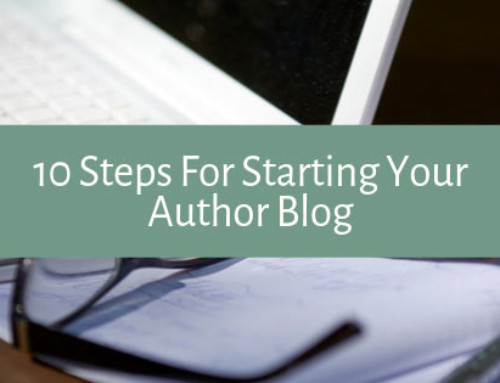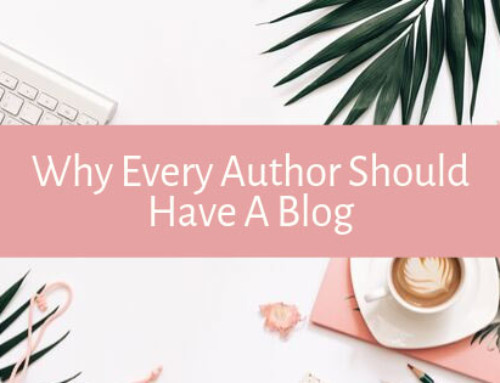It is a truth universally acknowledged that an indie author with a good book must be in search of reviews. But despite our wishes otherwise, reviews don’t come pouring in once your book’s available to purchase. Here’s how you can be proactive and get some of those coveted reviews.
Ask
No, seriously. Often, readers don’t know how valuable reviews are to authors. While you should never pester anyone to review your book, a well-placed ask can do wonders.
In the Back of Your Book
One of the best places to ask for a review? Right after they’ve finished reading your book. In the back of your book, include a special note to the reader thanking them for reading. After your thank you, ask for a review. Here’s what I write in my books:
Reviews help other readers discover my books (and keep me writing) so consider leaving an honest review on Goodreads or your favorite review site. It’s the easiest way you can support my continued writing efforts.
The truth is, the people who make it to the back of your book are the best people to be writing reviews. Capture them as soon as they’re finished reading and ready to take the next step.
And notice I didn’t say, “If you enjoyed this book, consider leaving a review” in my note. I want people to know that I value their opinions, whether it’s positive or negative. Negative reviews sell books, too. And no reader wants to feel as if her opinion is only valid if she enjoyed the book.
When Someone Asks “What Can I Do to Help?”
Readers get excited about their favorite books, and they’ll often ask if there’s anything they can do to help you promote your book. The answer should definitely be a resounding “Yes!”
You can ask them to review the book on their favorite review site (Amazon and Goodreads are the two main ones) or share the book with people they know, either online or in-person. Readers searching for a book to read will generally look to other readers for suggestions. Make sure your fans know a recommendation from them can help you—and help others discover your book, too.
Approach Book Reviewers
Book reviews usually fall under two categories: from readers and from professionals. Both are equally important, but for different reasons; book reviews from professional sites help legitimize your book, and having a strong number of reader reviews can influence a person’s purchasing decision.
Reader Reviews
Readers who review usually hang out on Goodreads, Amazon, or their own blogs. These people review books because it’s something they love doing. If you contact these people for reviews, they’re not obligated to review your book, even if they accept your request. Like you, they’ve got busy lives that may prevent them from doing something they’ve agreed to. You’re not entitled to reviews.
Here’s how to search for the best potential reviewers:
1. Search for similar books to yours on Goodreads and Amazon.
Find reviewers who enjoyed books similar to yours and who write helpful book reviews. They’ll be your best candidates. Get a feel for what they enjoyed about the books, and make sure your book fits with what they like. You want to target the right people for reviews.
2. Research your potential reviewers.
Check out their profile on Goodreads, or see if they link up any contact info on their Amazon reviewer profile. You want to get to know these people. Remember, you need to target the people who are most likely to enjoy your book.
At this point, you should also read their review policy (if they have one on their website or profile) and make sure your book fits within their guidelines. If it doesn’t, do not ask them to review your book. Go back to the first item in this list and search for other reviewers.
3. Connect with those reviewers.
No, I don’t mean send your review pitch yet. Once you’ve done your research and have a list of reviewers who might enjoy your book, it’s time to engage. Reviewers are going to be more willing to accept a review request from you if they know who you are. Be genuine. Say, “Hi” on social media, comment on their reviews, or share their review of a book you think your audience might like.
4. Ask for a review.
Once you’ve engaged with your potential reviewers for a while, you can start crafting a pitch. Head back to their review policy and reread it. Make sure you follow it exactly when you submit your request. Trust me, if you can’t spend 30 seconds reading a review policy, that reviewer isn’t going to spend eight hours reading and reviewing your book. A little respect goes a long way.
Once you’ve asked for a review, you’ve done all you can. Some of the reviewers you pitch might respond to you, but some might not. Consider following up with them if you don’t hear anything back, and don’t forget to keep engaging. Don’t stop once you ask for a review—otherwise, it’ll be obvious you only connected to get a review.
5. Repeat the process with new reviewers.
After you’ve contacted a handful of reviewers, it’s time to find new ones! Keep searching for more people to review your book—the more reviews, the better. Create a list of every reviewer you’ve pitched so you don’t accidentally pitch the same reviewer twice. You can also use this list to track who’s accepted your pitch and when they’ll post the review.
Professional (Paid) Reviews
Professional reviews often mean paid reviews for first-time indie authors. While you should never purchase reader reviews (see above section), you can purchase reviews through a few reputable websites known for their book reviews. Kirkus and Clarion Review are great examples. Most professional review sites require your book ahead of your publication date, build that into your publishing timeline.
Add a professional review to your editorial reviews section on your Amazon book page or use it in website or ad copy. These professional reviews help legitimize your book as something worth reading.
Giveaways
Yes, giveaways can help you get book reviews—and get more eyes on your book.
Goodreads Giveaways
As a Goodreads author, you’re able to host giveaways through Goodreads. The giveaway listing is posted on your book’s Goodreads page, and members of the site can enter and add the book to their “to be read” shelf. Winners are generally expected to review the book.
Even though winners are expected to review the book, they’re not obligated. If your winner doesn’t review your book, don’t follow up. Consider offering more than one copy of your book to help ensure you get at least one review.
Promotional Giveaways
You can also give away your book to readers, and you’ve got a number of ways to do so. Offer a free copy of your book to people willing to review your book. The best people to ask are ones on your email list or who follow you on social media. If you host an in-person event, you can hand the book to people and say, “I’d also love if you reviewed my book!”
If you have multiple books, you can give away the next book in a series as enticement to review the current book. Include a short note in the back of your book—something like, “Want a free copy of book 2? Send me the link to your review of book 1, and I’ll email you an electronic version of book 2!”
NetGalley
Best suited for genre fiction, NetGalley is a site where influential readers (reviewers, librarians, educators, media professionals, and booksellers) can request to review books. Instead of searching for reviewers, they’ll be able to search for you there.
Not everyone who downloads your book will leave a review, but a well-written book (with an attractive cover) can give you a huge boost with reviews—and you can use those reviews for promotional purposes on your website, ad copy, or Amazon book page.
Like professional review sites, it’s recommended that you submit your book to NetGalley before its publication date to amass a number of reviews. Having reviews on release day can help bump up your book’s profile on Goodreads and Amazon.
Discover more from Mill City Press
Subscribe to get the latest posts sent to your email.














Leave A Comment